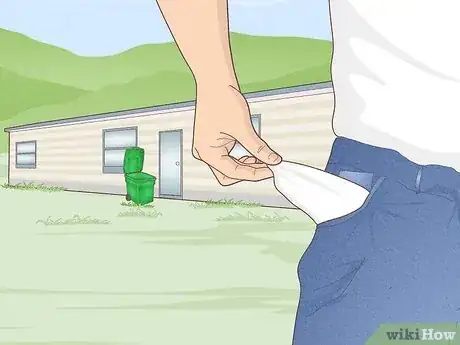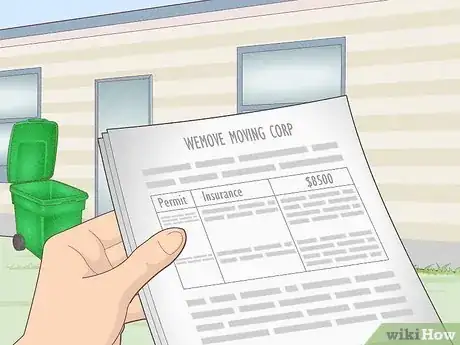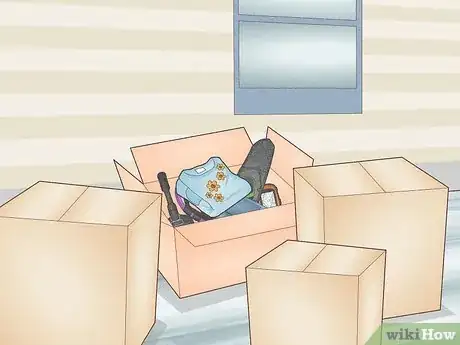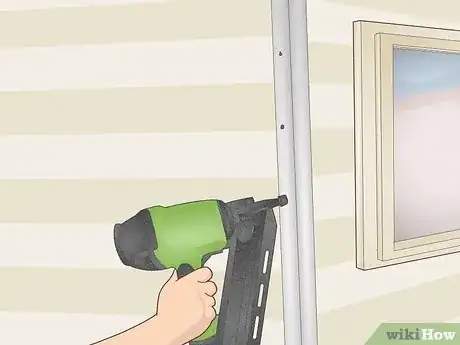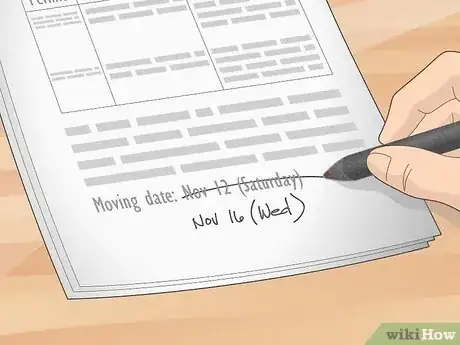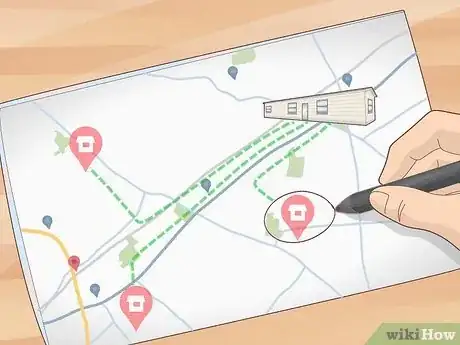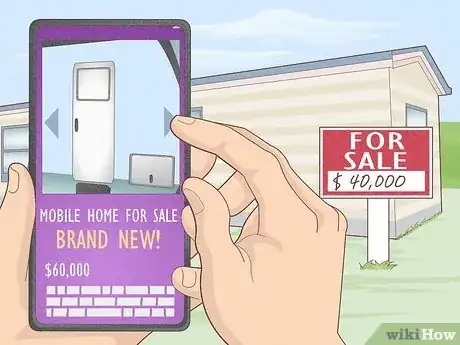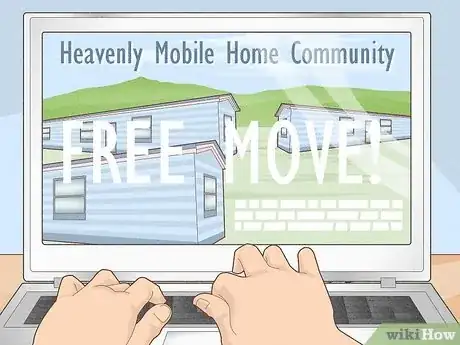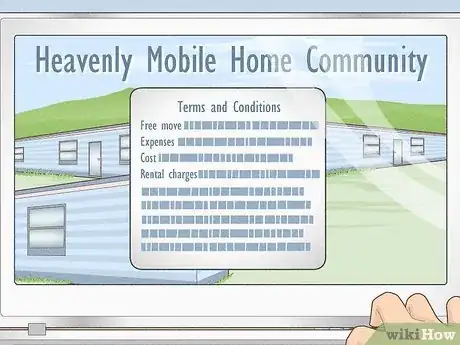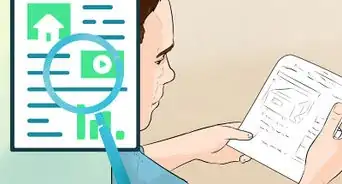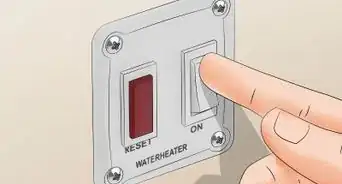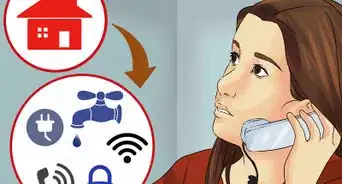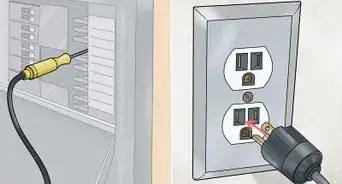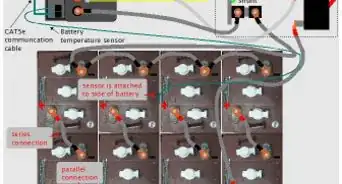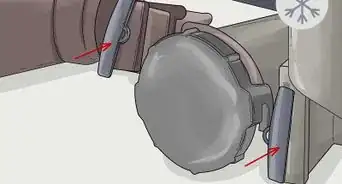This article was co-authored by wikiHow staff writer, Christopher M. Osborne, PhD. Christopher Osborne has been a wikiHow Content Creator since 2015. He is also a historian who holds a PhD from The University of Notre Dame and has taught at universities in and around Pittsburgh, PA. His scholarly publications and presentations focus on his research interests in early American history, but Chris also enjoys the challenges and rewards of writing wikiHow articles on a wide range of subjects.
This article has been viewed 2,779 times.
Learn more...
One of the biggest advantages of living in a mobile home is the fact that you can relocate across town or across the country without leaving behind the comforts of the home you know and love. While your chances of moving your mobile home for free (as in literally zero dollars) are extremely low, it’s definitely possible to save big bucks on a mobile home relocation. Keep reading for answers and insights that can help you move your mobile home for as close to free as possible.
Things You Should Know
- Some mobile home communities advertise “move for free” offers, but be sure to read the fine print and ask lots of questions to find out how “free” it really is.
- Professional movers charge an average of $7,000 USD to move a mobile home, but it’s worth it to stick with the pros rather than attempt a fully-DIY move.
- Save money on your mobile home move by getting multiple quotes, being flexible, and doing some of the associated work yourself.
Steps
Saving Money on a Mobile Home Move
-
1Anticipate a budget of around $7,000 USD to move just your home. In fact, it can cost $1,000-$20,000 USD to have a professional mover relocate your (emptied) mobile home. The price range is very broad because of the variables at play—things like the distance of the move, the time of year, the condition of your mobile home, local permits and fees, and so on. That said, if you’re moving a single-wide mobile home that’s in good condition 100 mi (160 km) or less, $5,000-$7,000 USD is a solid estimate.[2]
- Right about now, it might be tempting to think about moving the mobile home yourself—it is mobile, after all! But moving a mobile home is a unique process that requires specific equipment and skills. It’s also illegal in many places to attempt a DIY mobile home move—so it’s best to just stick with the pros.
-
2Get detailed quotes from multiple mobile home moving companies. While you should limit your options to moving companies that specialize in mobile homes, you definitely should not assume that they’re all alike. Contact multiple—ideally three or more—movers and have them evaluate your moving needs and give you written quotes that specify all elements of their charges. Also ask them questions like the following:[3]
- “What kind of insurance do you carry, and is this included in the quoted amount?”
- “Will you take care of the process and cost of getting the necessary permits?”
- “What needs to be done to prepare my mobile home for the move? How much of that preparation will be done by you, and how much is my responsibility?”
- “Are there any “hidden charges” here for things like cleaning up the site after loading up my mobile home, moving any attached porches or awnings, and so on?”
- “Can you give me referrals for at least three past customers?”
-
3Pack up and move the stuff in your home yourself. Professional movers require you to empty the mobile home of everything that’s not bolted down. While you can probably pay them to move your stuff separately from your home, moving yourself is definitely a potential DIY job that can save you money.[4]
- Get boxes for packing by visiting grocery stores and other retailers—they’ll probably be willing to give you boxes for free. For high-value or heavy items, however, you may want to invest in higher-quality moving boxes.
- Pack boxes with items based on their size/weight, location (kitchen, etc.), and importance (i.e., pack “need right away” stuff together).
- Rent a moving truck to pack and drive yourself to save money compared to hiring full-service movers.
-
4Do basic repairs to get your mobile home “move-ready” yourself. Items like loose or worn roofing materials, siding, and windows need to be dealt with before the movers can load up and haul your mobile home. While you can usually pay them to do this work for you, going the DIY route can be easier on your wallet.[5]
- You might replace or just temporarily board up a window that’s loose or rattling, for example.
- If your mobile home has a shingle-style roof that has seen better days, it may make sense to remove the old roofing material before the move and then install new shingles afterward.
-
5Be flexible about when you want the move to happen. Mobile home movers can get very busy during the warm-weather months, especially in areas with harsh winters. If you can make the move on their schedule rather than your own—on a Wednesday, for example, instead of a Saturday—you may be able to obtain a small but worthwhile discount.[6]
- If you’re relocating to a mobile home community, confirm that they permit home installations on weekdays (and not just weekends) before booking a midweek date with your mover.
-
6Opt for a short-range move over a long-range one. While it rarely makes sense to pick a closer relocation spot just to save some money on moving costs, it may be a worthwhile deciding factor in a “coin-toss” decision between locations. Many movers charge a flat rate for moves up to 50 or 100 mi (80 or 161 km), and may charge a budget-straining per-mile rate beyond that.[7]
-
7Compare the cost of selling your mobile home and buying a new one. Buying a mobile home that’s brand-new or like-new can easily cost $60,000 USD or more, so it usually makes more financial sense to relocate your existing mobile home rather than replace it. However, if you’re able to sell your mobile home for, say, $40,000 USD or more, there’s a chance you might be able to come out ahead this way.[8]
- In the U.S., use the NADA Manufactured Housing Appraisal Guide (the “blue book” of mobile homes) to determine the value of your current mobile home and any you’re interested in buying.
Evaluating a “Free Move” Mobile Home Community
-
1Confirm your mobile home is eligible to relocate to the community. You might be drawn in by the mobile home community’s website that offers to “move you for free,” but take time to read the fine print before contacting them. Some communities have restrictions based on factors like the age or condition of your mobile home—they might accept only double-wides, for instance. If you think you meet their criteria, then move on to evaluating them and their “free move” offer.[9]
-
2Get a detailed explanation of which costs are being covered. When the mobile home community is advertising a “free move,” just how “free” is it? The only way to know for sure is to read the fine print and ask lots of questions. And, if you do choose to move there, get the terms in writing before signing anything. Ask questions like the following:[10]
- “By “free move,” are you offering me a free spot in your community as well as covering the cost of moving my mobile home from its old spot to its new location?”
- “What expenses will I be responsible for?” (For example, moving your stuff in the mobile home, site preparation, permits and fees, and so on.)
- “If you’re covering the cost of the move, do you get to choose the moving company or is that my choice?”
- “After my “free move,” what kinds of rental charges, upkeep fees, etc., will I be responsible for over the long term?”
-
3Ask yourself why the community is so eager to have you. Let’s not paint with too broad of a brush here—there are probably some really nice mobile home communities out there that are making genuine “free move” offers for a variety of reasons. But the fact of the matter is that most “free move” offers are due to a big struggle to fill up the spaces in the community. So, do some research to figure out why they’re struggling to get people to move in.[11]
- Search online for reviews of the community, and take note especially of any recurring negative (or positive) feedback.
- Talk to some of the residents without the community management present and ask their opinions on the pros and cons of the community.
- Remember that the short-term benefit of a “free move” probably isn’t worth the cost if you end up stuck in a mobile home community that doesn’t suit you. You’re better off paying to move to a community that truly meets your needs.
References
- ↑ https://www.mhvillage.com/blog/moving-a-mobile-home/
- ↑ https://www.bobvila.com/articles/how-much-does-it-cost-to-move-a-mobile-home/
- ↑ https://www.mymove.com/moving/costs-and-finances/move-mobile-home-cost/
- ↑ https://www.mhvillage.com/blog/moving-a-mobile-home/
- ↑ https://www.mhvillage.com/blog/moving-a-mobile-home/
- ↑ https://www.bobvila.com/articles/how-much-does-it-cost-to-move-a-mobile-home/
- ↑ https://www.bobvila.com/articles/how-much-does-it-cost-to-move-a-mobile-home/
- ↑ https://www.mymove.com/moving/costs-and-finances/move-mobile-home-cost/
- ↑ https://www.mobilehomesell.com/mobile-home-parks/
